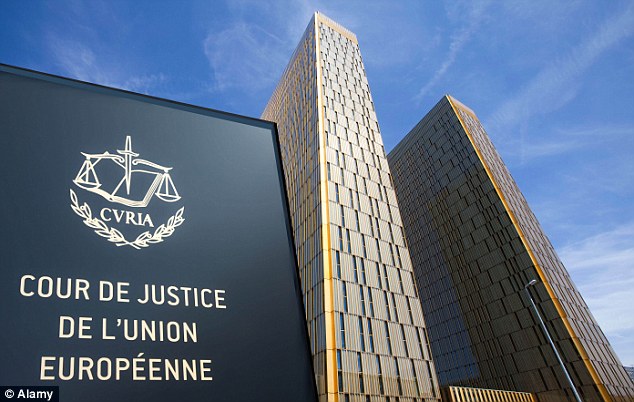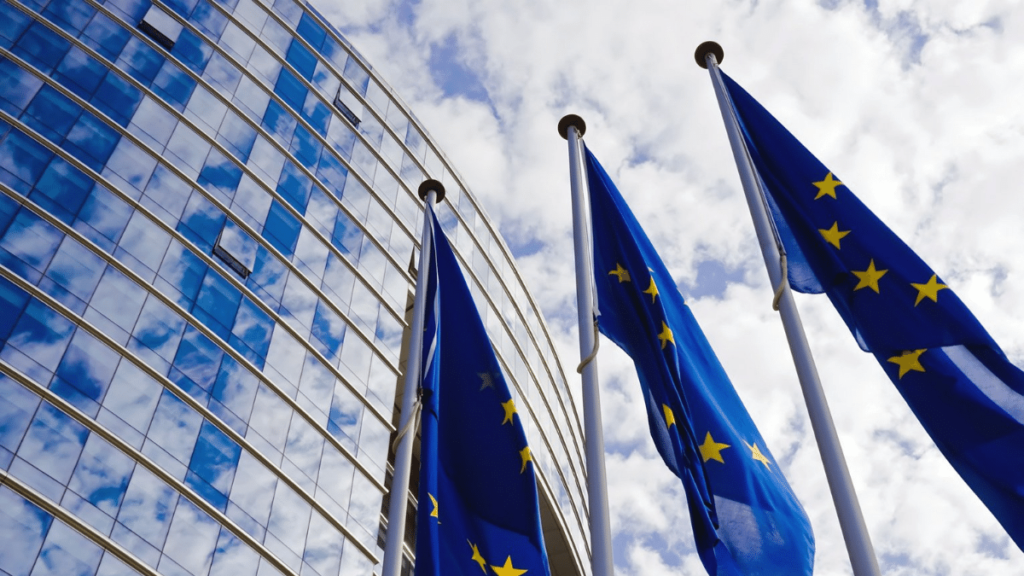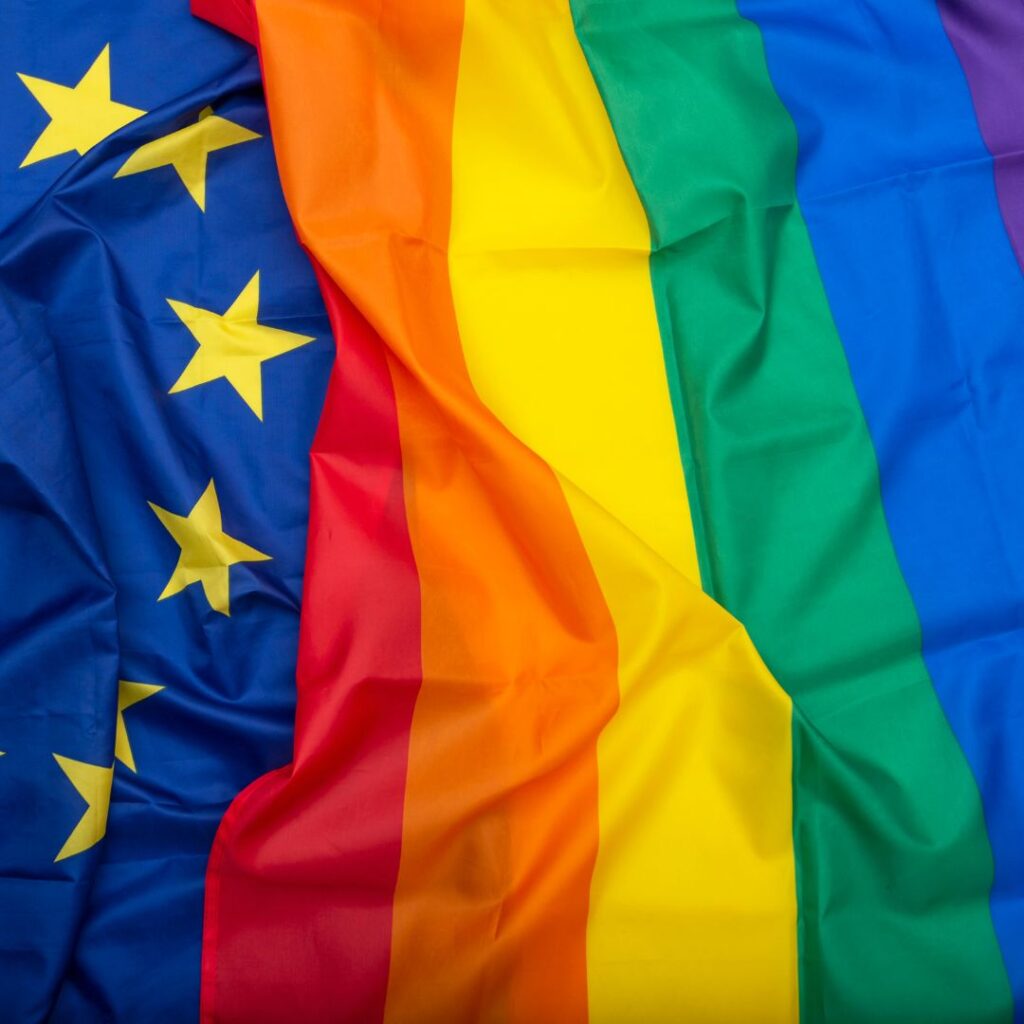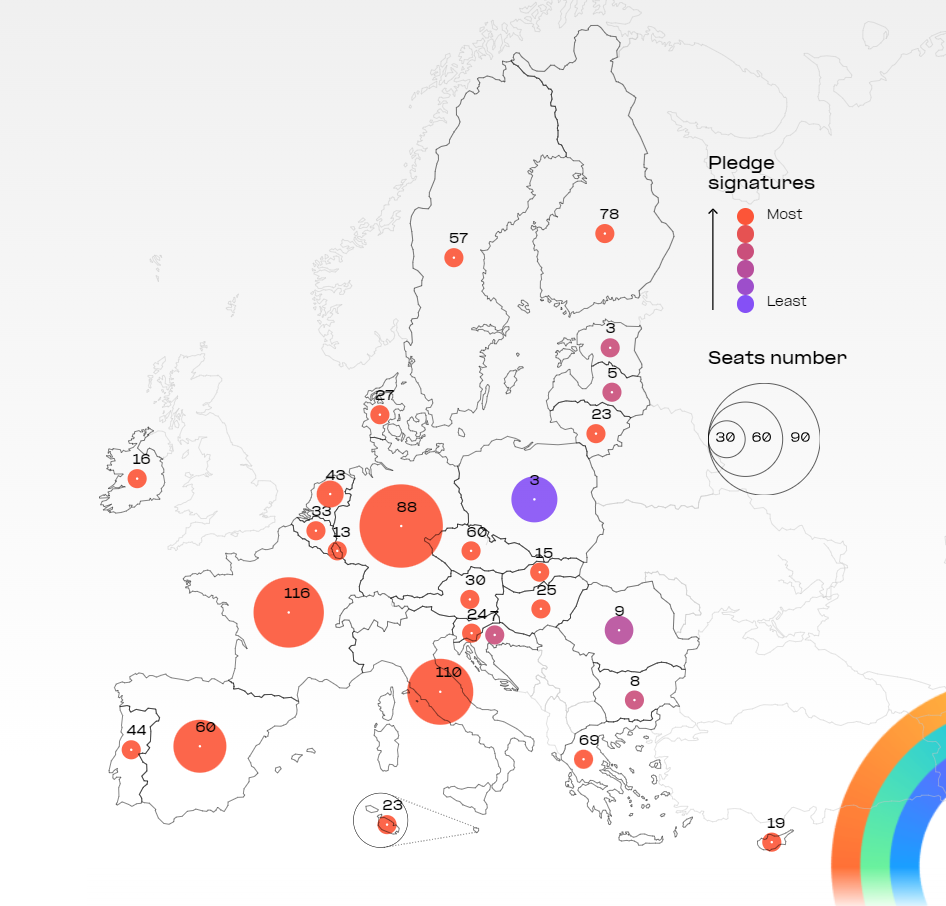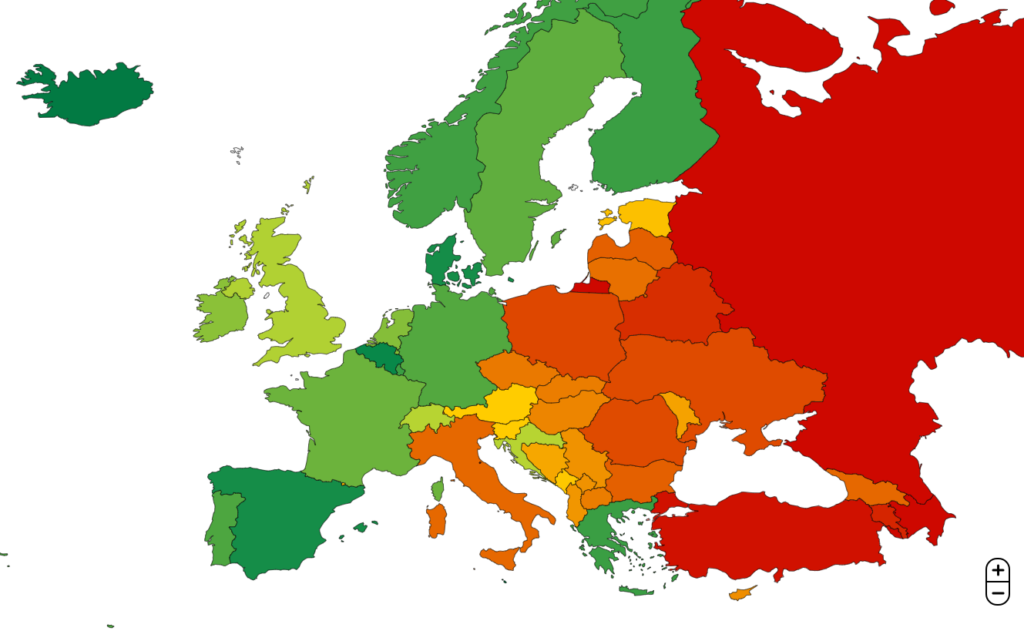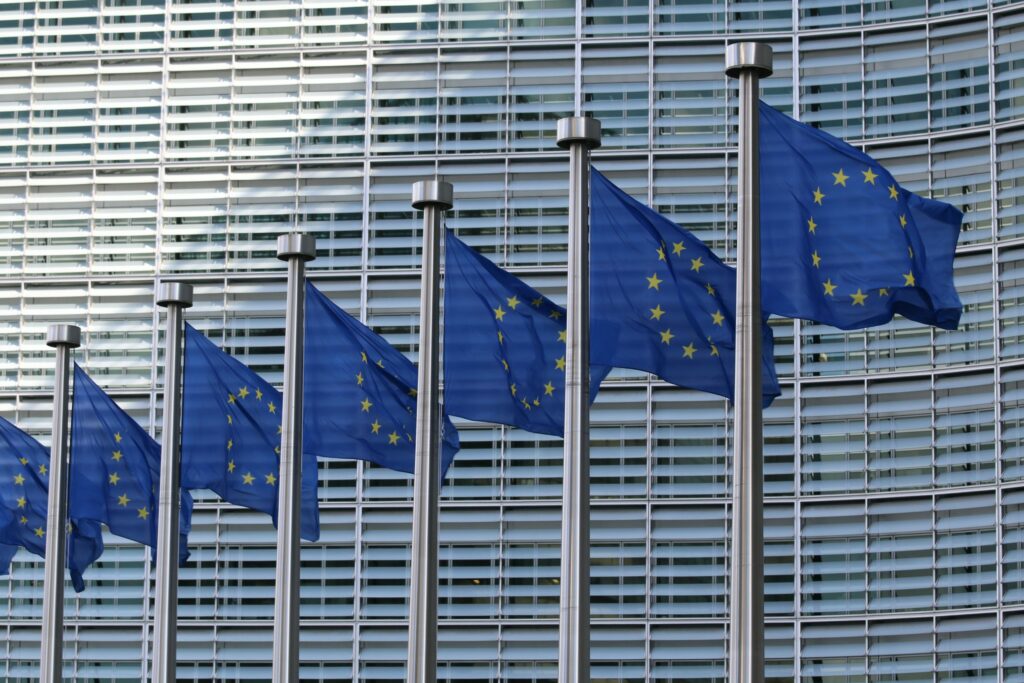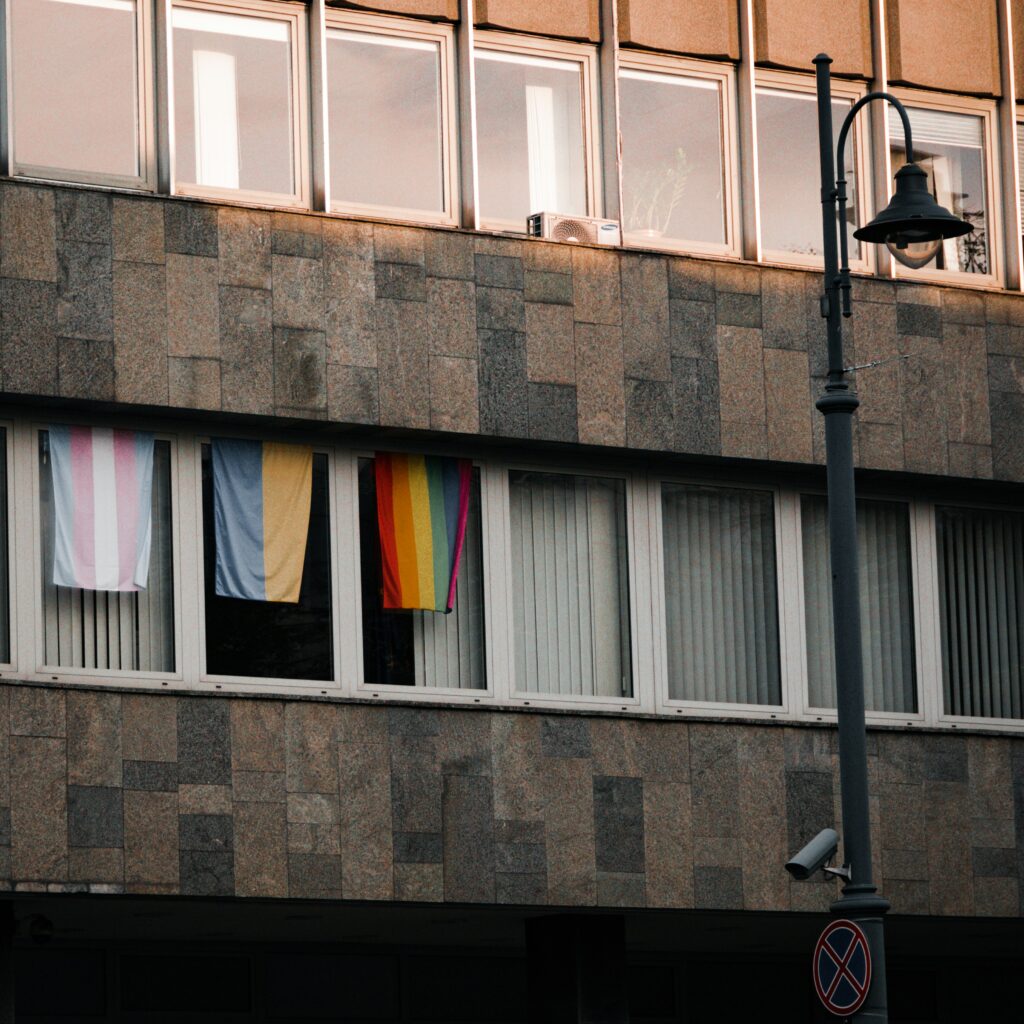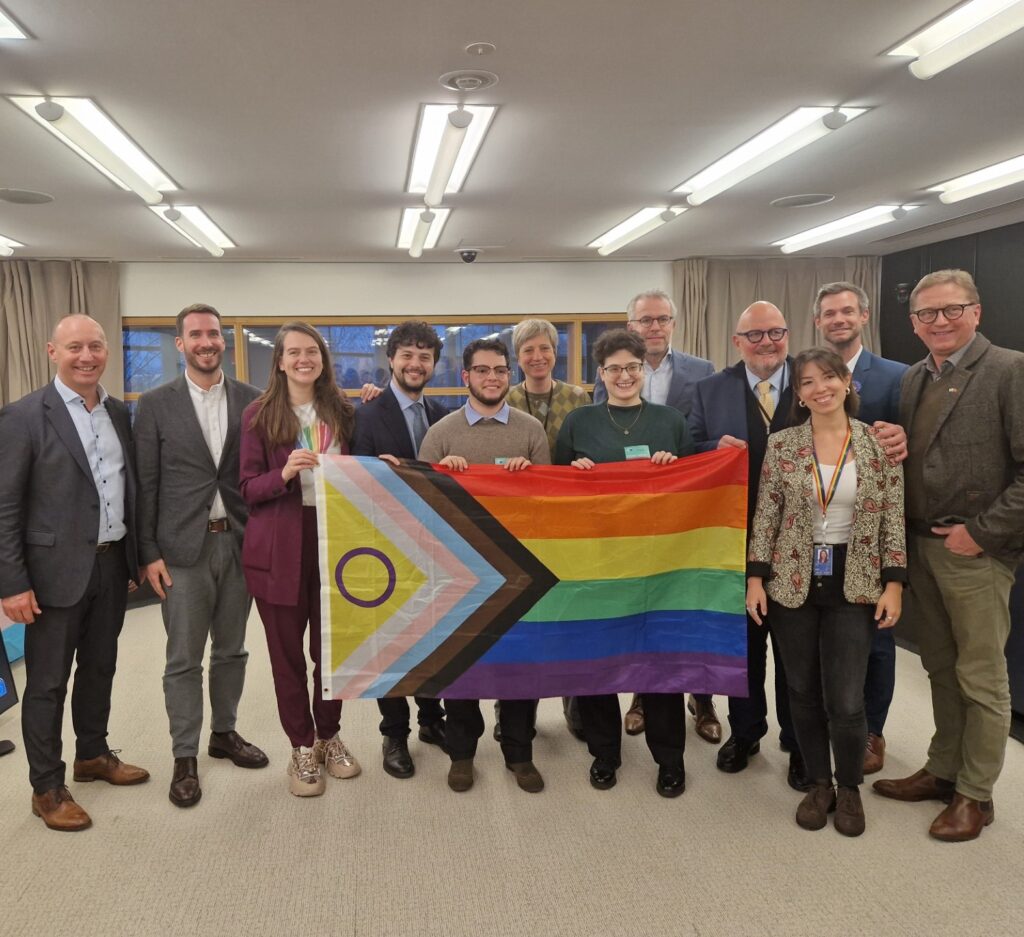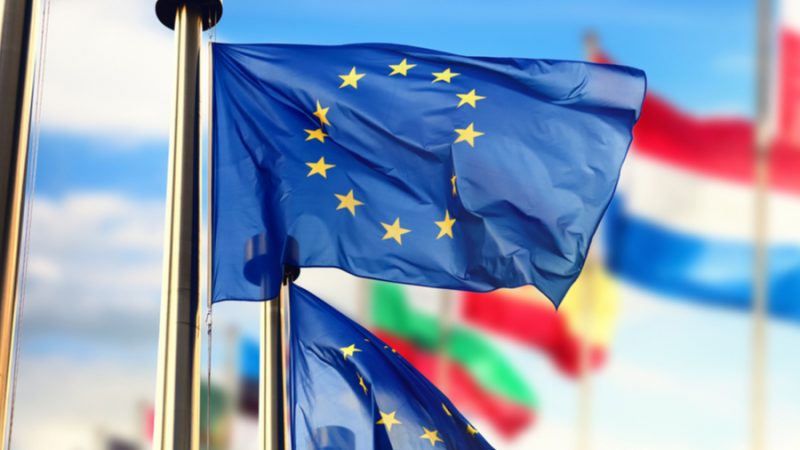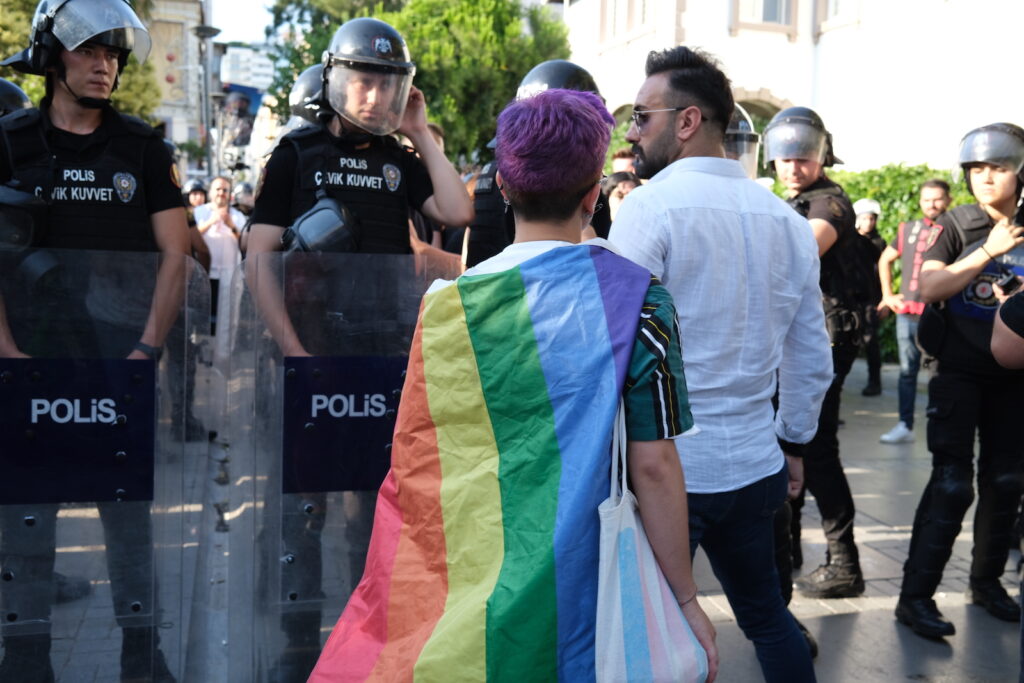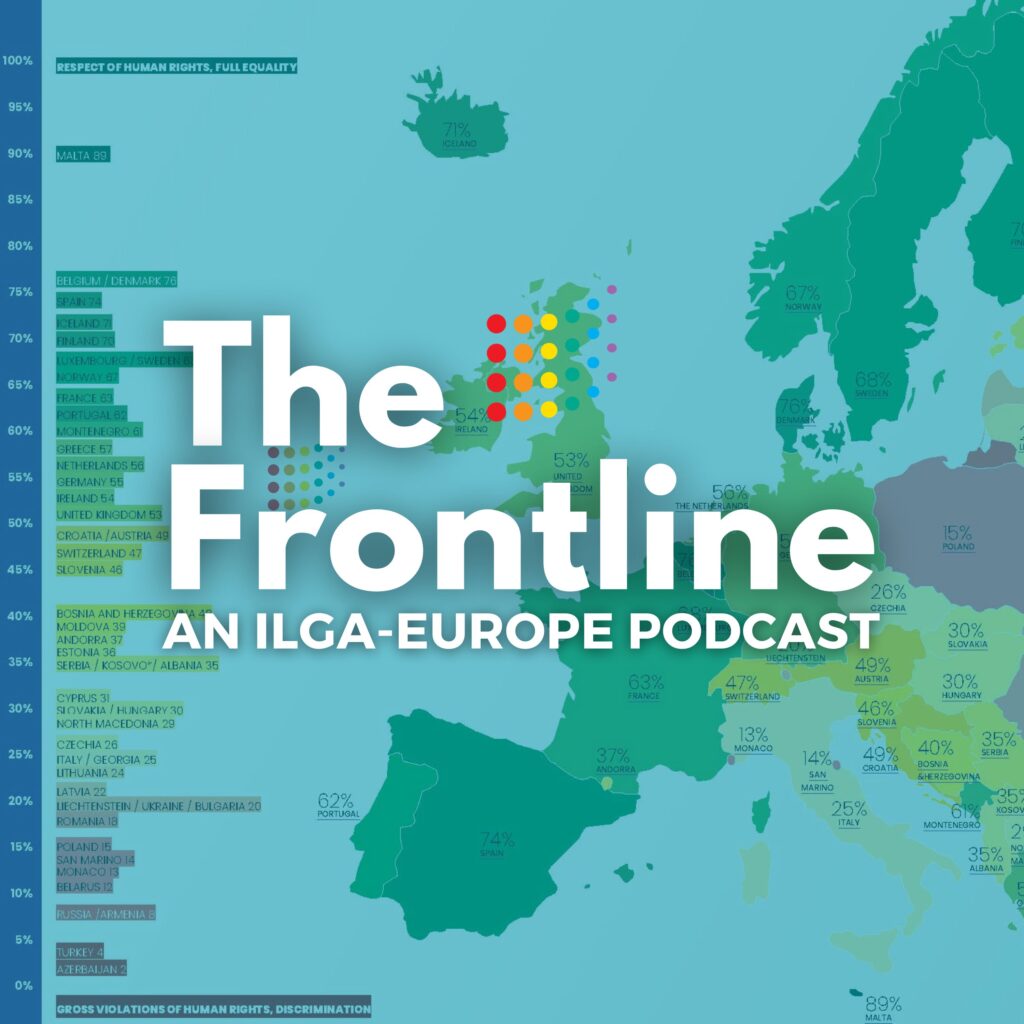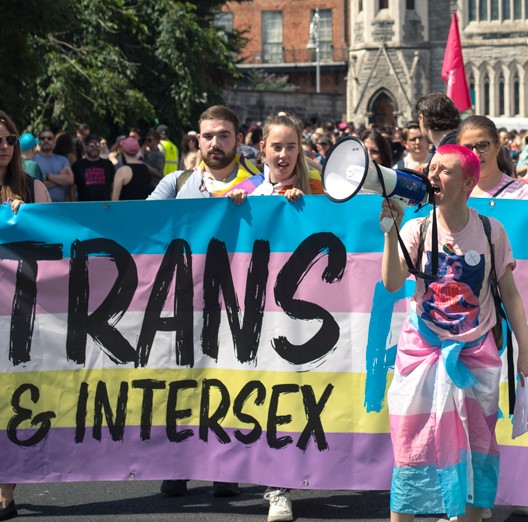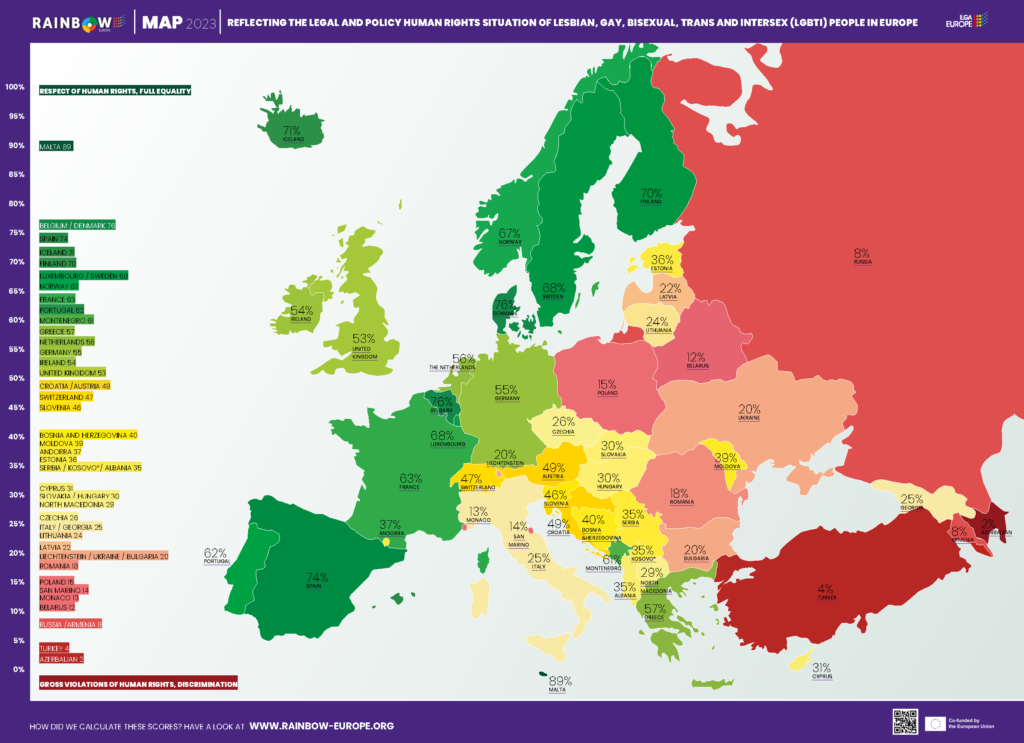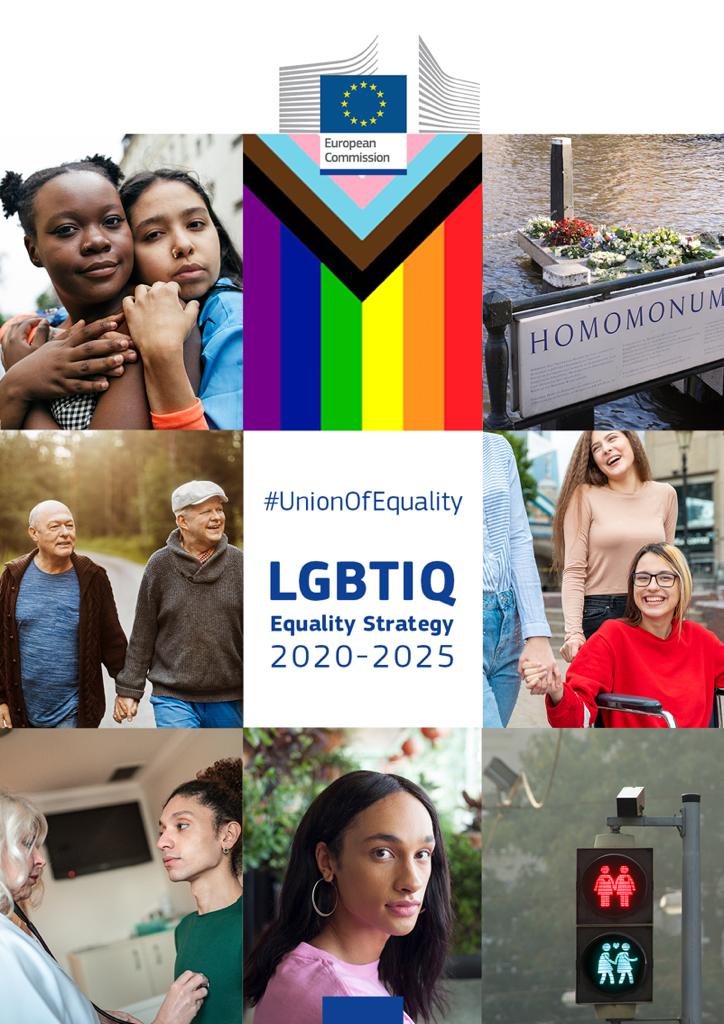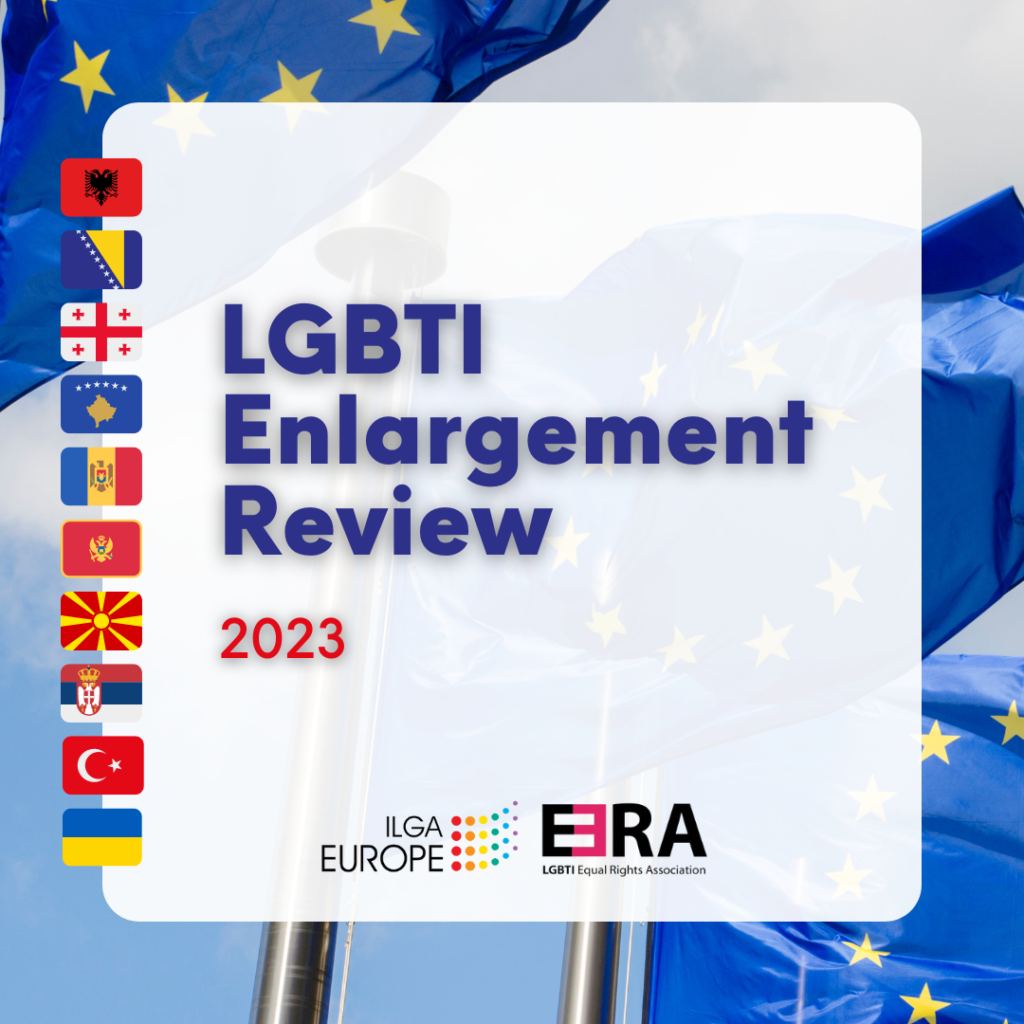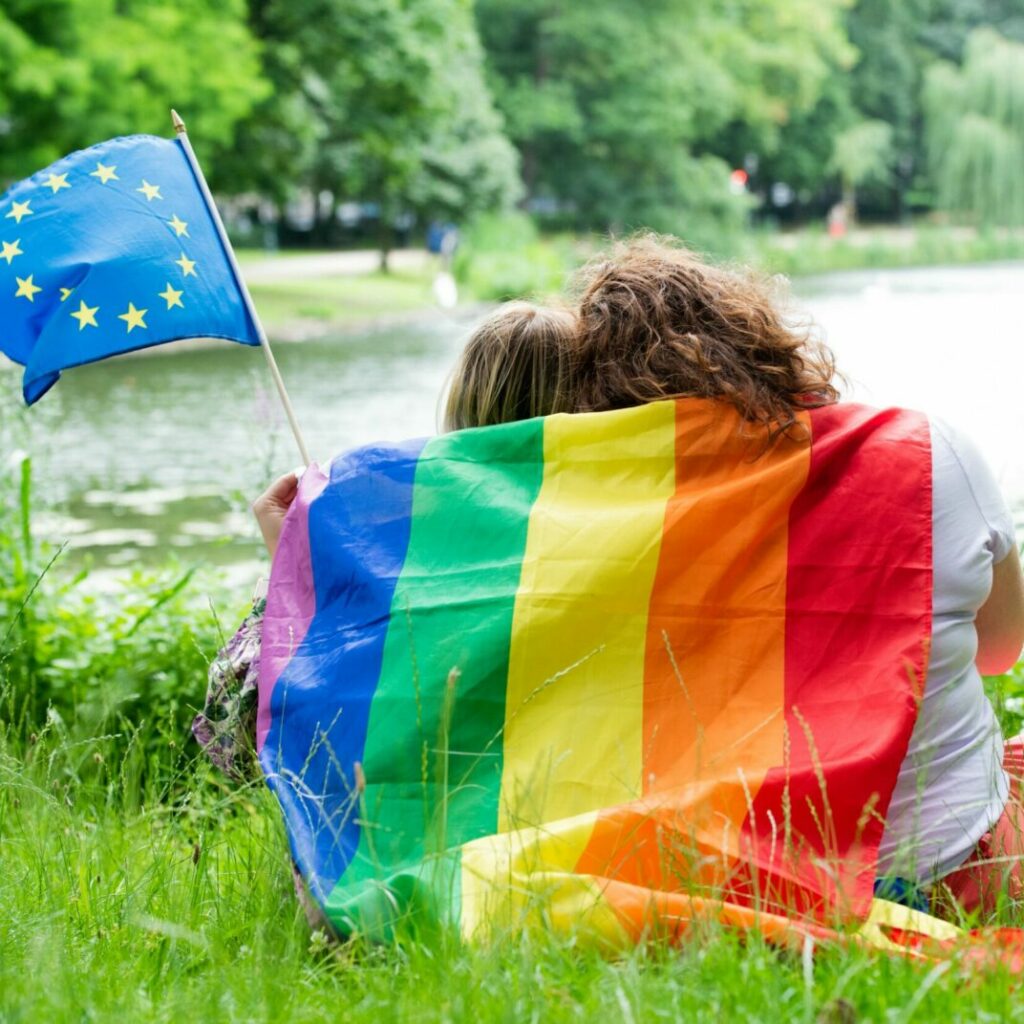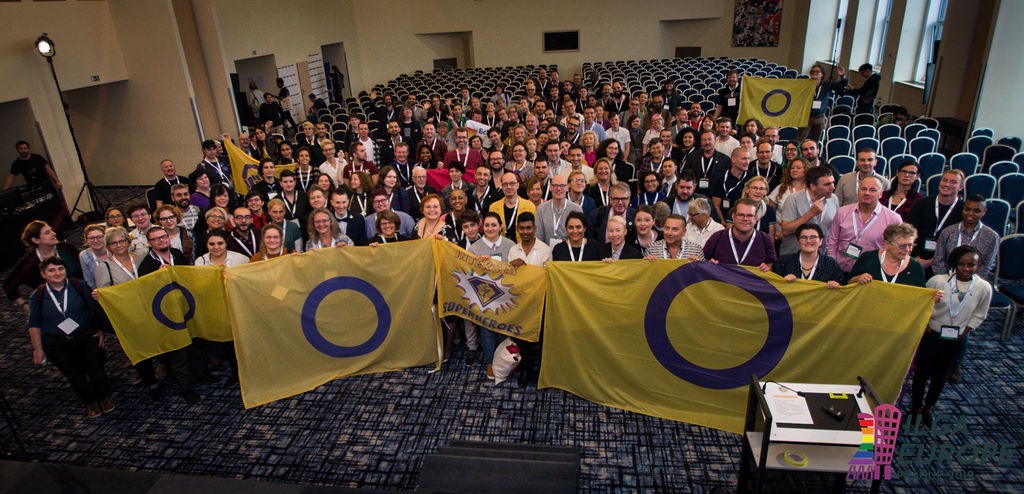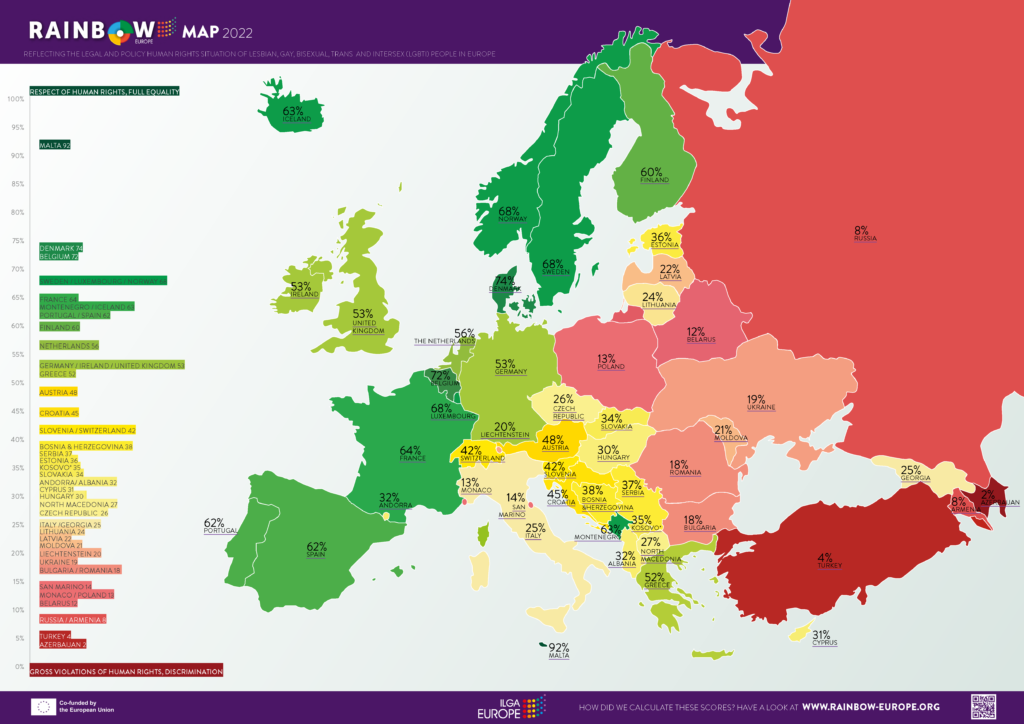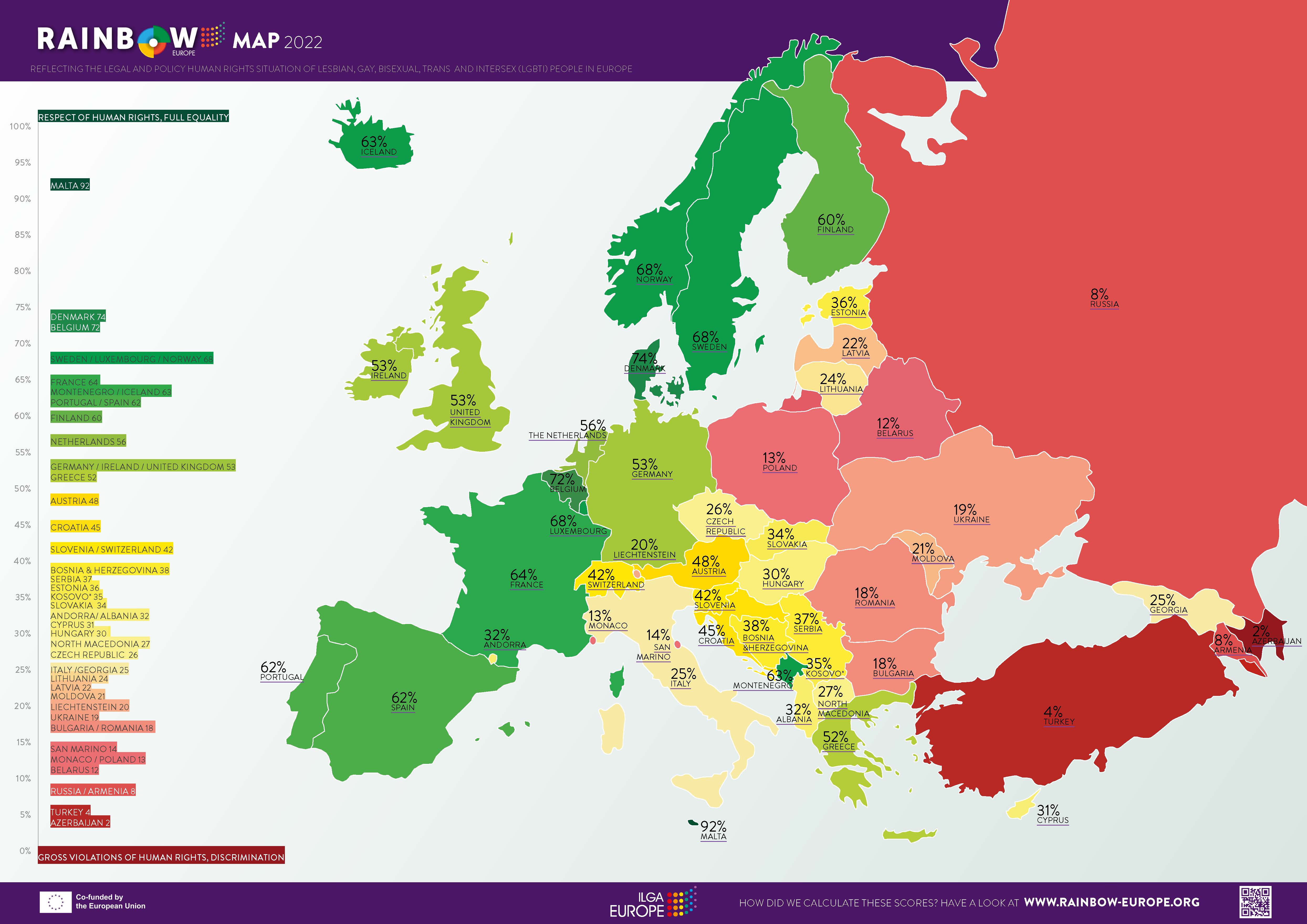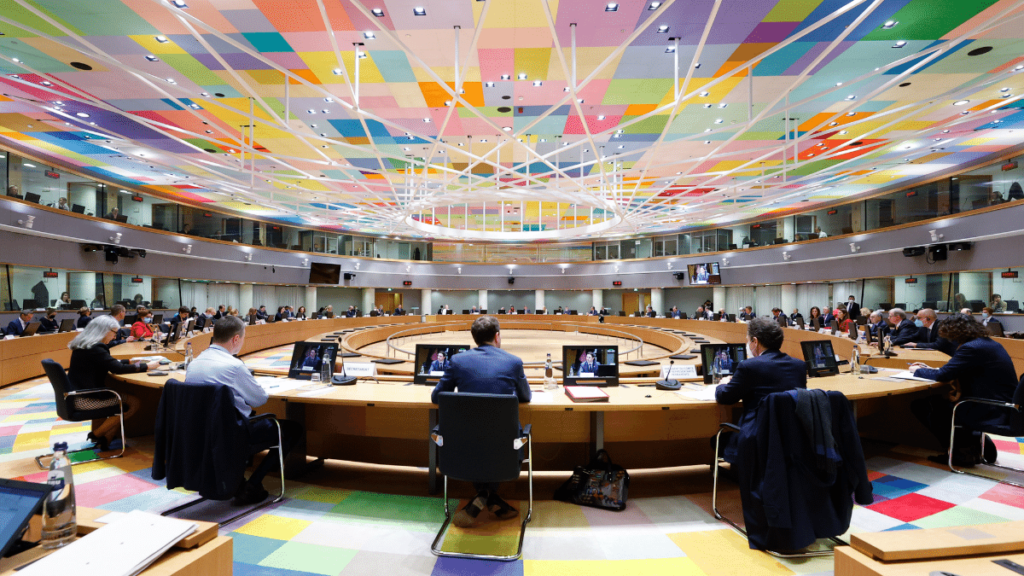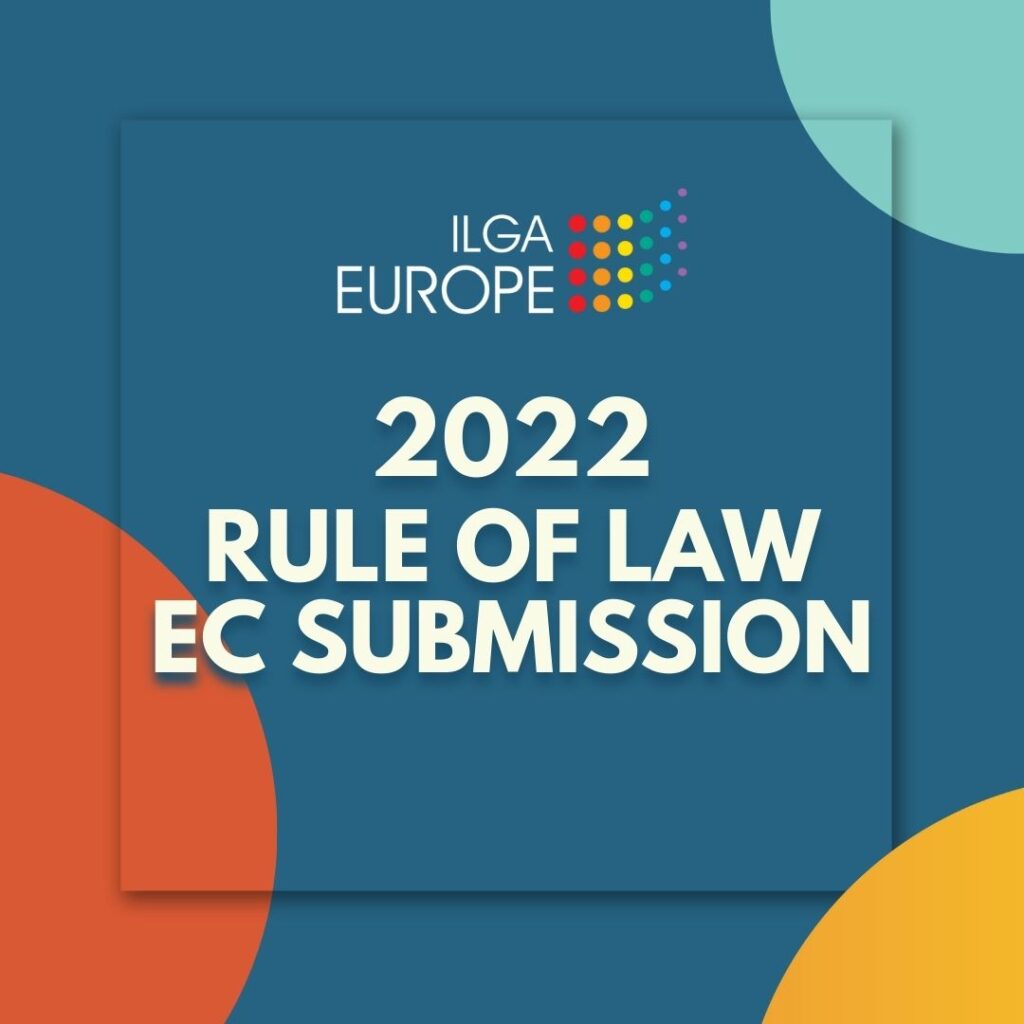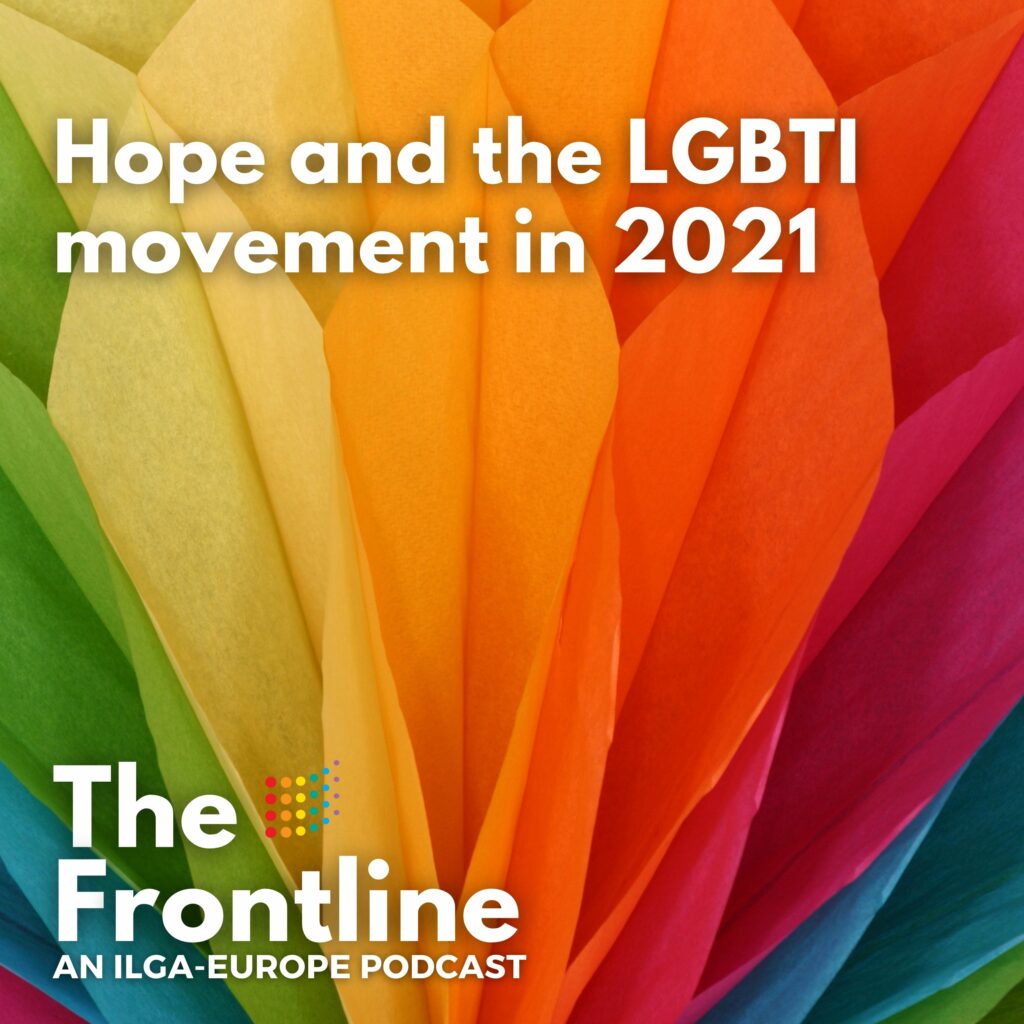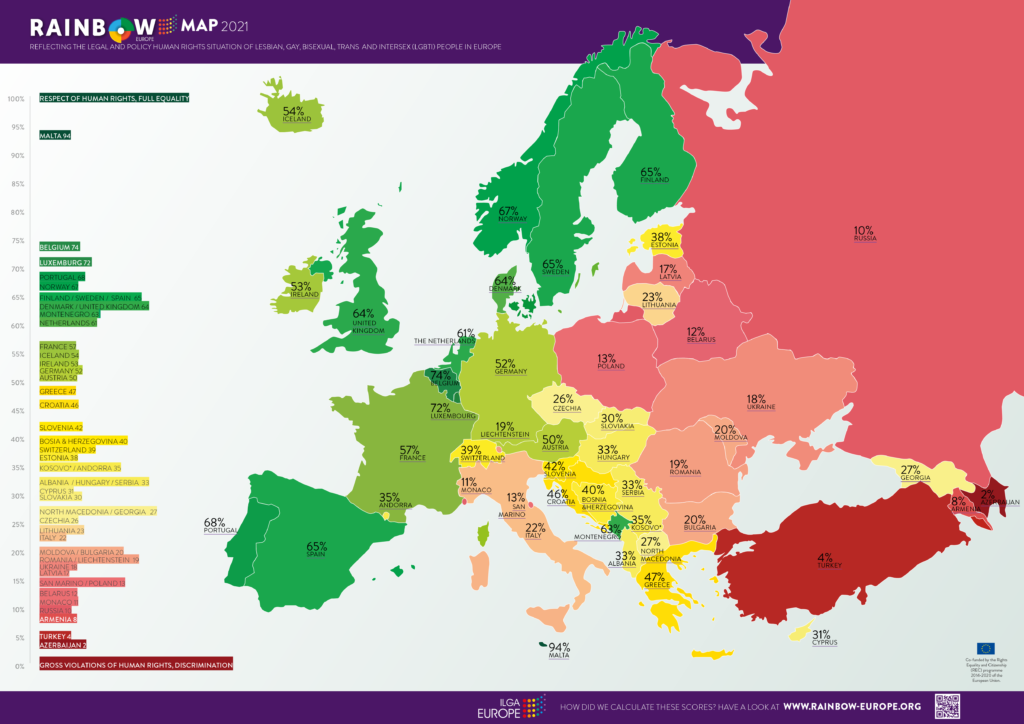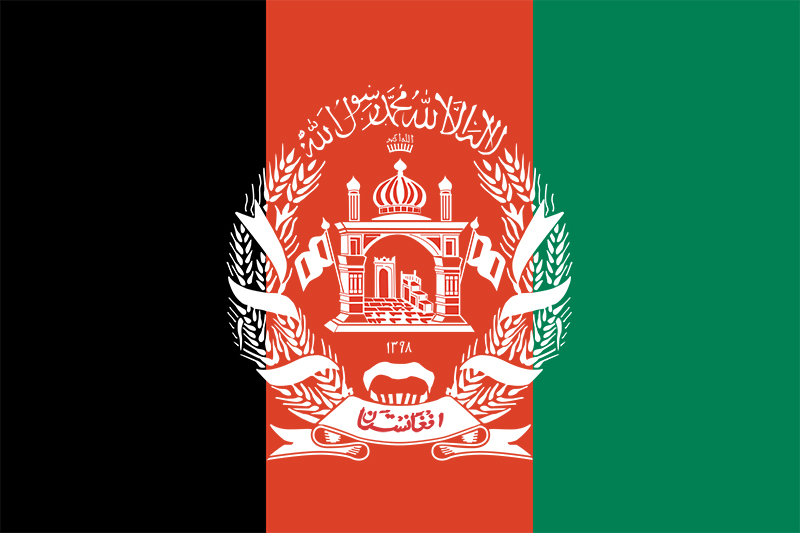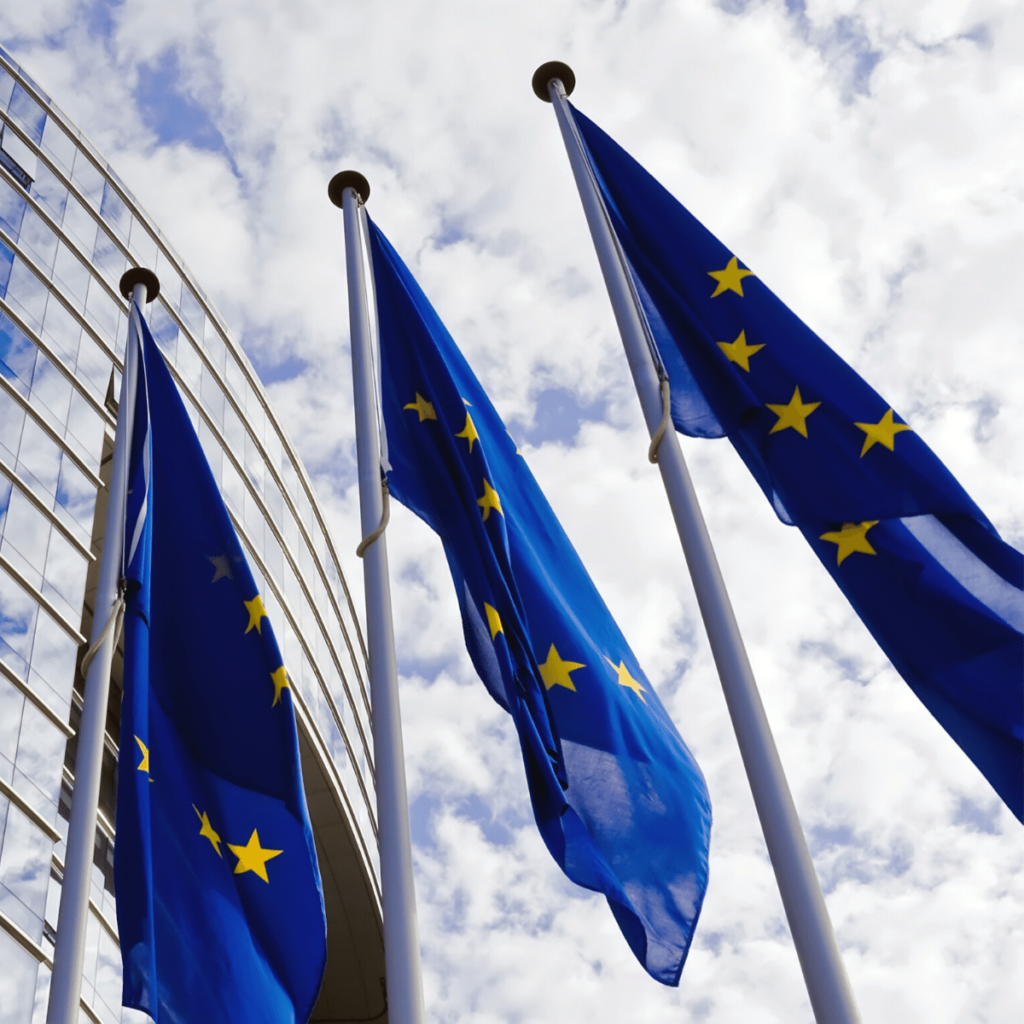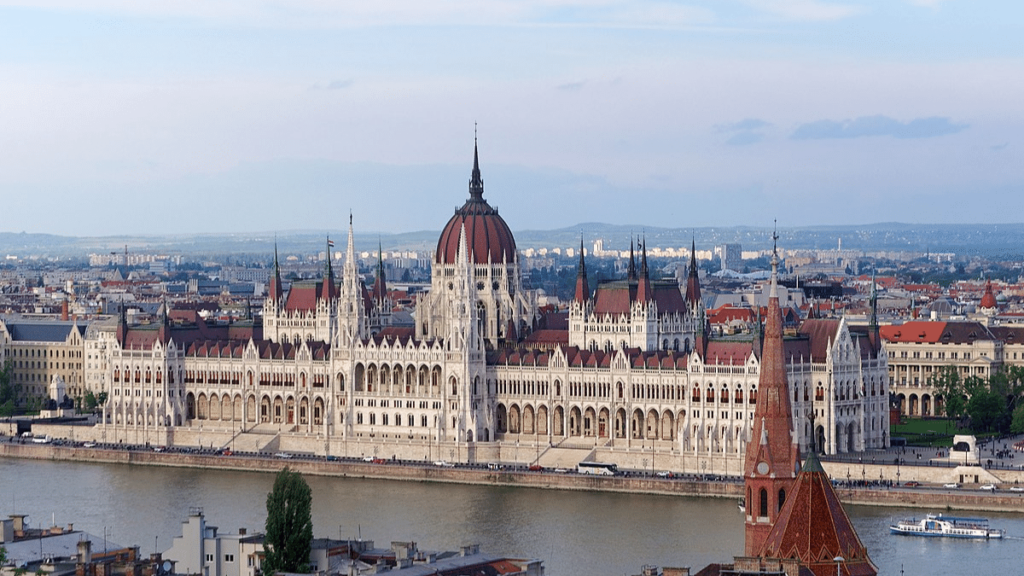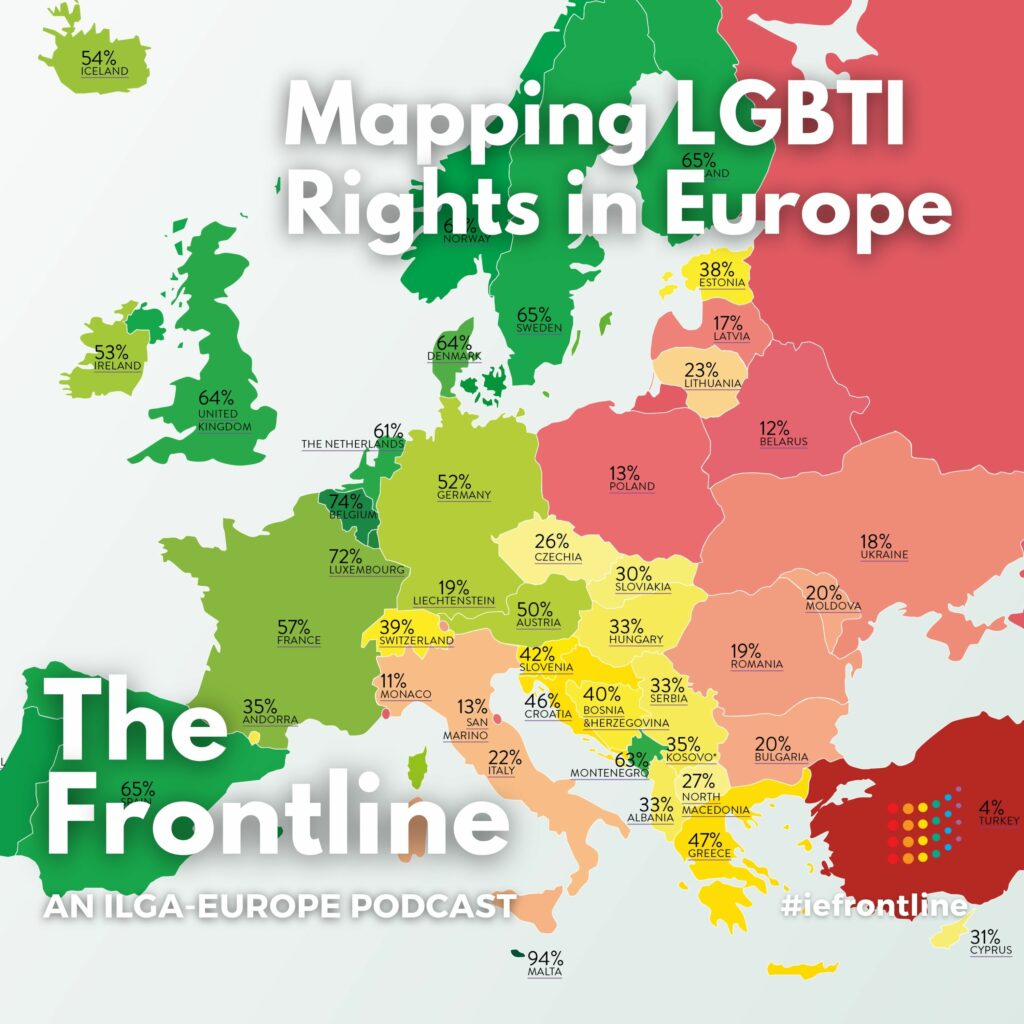Denmark
Categories Score
The full bar chart stands for 100%, and is filled by the country category score. The colour display uses the traffic light palette, with Green representing a score closer to 100% and Red a score closer to 0%.
ASYLUM
This category looks into laws that expressly include SOGISC as a qualification criteria for seeking asylum. We also take into account other legislation, policies, instruction or positive measures by state actors that are related to asylum addressing the needs and rights of LGBTI asylum seekers and refugees.
Criteria Compliance Ratio
Each pie charts stands for a category and is divided in slices by criteria. When a country complies with a criteria – fully or in some regions – the slice is coloured.
Keep in mind the criteria have different weighting factor within a category; for example, the criteria Prohibition of medical intervention without informed consent (intersex) stands for half (2.5%) of the INTERSEX BODILY INTEGRITY category weighting factor (5%). Meaning that even if a country can only comply with this specific criteria within the category (1/4 total criteria) the category scores 50%.
More information on the categories and criteria weighting factors here.
Category & Criteria Table
The table lists detailed information and insights on legislation supporting each criterion status. Please use the filters for in-depth analysis.
n/a = not applicable, meaning the criteria didn’t exist in the previous Rainbow Map edition (PROGRESSION column)
- Complies
- Applicable in some regions only
- Does not Comply
RECOMMENDATIONS
In order to improve the legal and policy situation of LGBTI people in Denmark, ILGA-Europe recommend:
- Recognising more forms of rainbow families, in particular families with more parents and more kinds of parenting roles (such as legal parents with parental rights and social parents who are recognised as part of the family).
- Removing the age restriction in the existing legal gender recognition legislation.
- Developing policies and other measures on asylum that contain express mention of all SOGIESC (sexual orientation, gender identity, gender expression, sex characteristics) grounds.
Annual Review of Denmark
In our Annual Review of the Human Rights Situation of LGBTI People in Europe and Central Asia, we examine the advances made and provide concrete examples of on-the-ground situations at national level country-by-country in the 12 months from January to December 2024.
Read our Annual Review of Denmark below for more details and stories behind the Rainbow Map. You can also download the Annual Review chapter (.pdf) covering Denmark.
-
During Copenhagen Pride week, former minister of equality Marie Bjerre from the Venstre Party published an opinion piece in a major Danish newspaper which presented trans and intersex people as posing a threat to the achievement of gender equality in the country. As part of the publication, Bjerre misrepresented trans and intersex people, in stark contrast with Danish governmental policies on LGBTI topics. Soon after the publication the Government reorganised its internal roles, leading to Bjerre’s reassignment to the Ministry of Foreign Affairs and allowing her to avoid the need to respond to public criticism by LGBTI organisations.
-
In July, a migrant trans woman was murdered in a hotel room in Copenhagen.
-
In its 2023 Concluding Observations on Denmark’s eighth periodic report, the Committee Against Torture (CAT) expressed concern over the unnecessary and irreversible surgeries performed on intersex children without informed consent. The committee recommended that Denmark enforce existing legislation that prohibits irreversible surgeries on intersex children for cosmetic reasons and conduct studies to better understand the issue.
Doctors have used the existence of legislation against plastic surgery on children under 18 to assert that surgeries on intersex children are already prohibited. However, this is not the case as these surgeries are often categorised as necessary for the child, despite clear and repeated documentation to the contrary.
The UN has further recommended that “all persons who experience severe pain and suffering as a result of unnecessary medical procedures conducted without their consent should have access to effective remedies.” Additionally, the UN urged that “the State party should also ensure that all intersex persons receive the same level of specialised care, regardless of their conformity with the gender they were assigned at birth.” Despite these recommendations, no legislative improvements have been noted.
In December, Rigshospitalet was reported to the police over regulatory breaches in a research project involving boys under two years old. The project, which was stopped by the Danish Medicines Agency, revealed serious procedural failures, including the use of expired drugs and lack of parental consent. This incident raised further questions about oversight and transparency in medical practices affecting children.
In March, Denmark signed a UN draft resolution aimed at combating discrimination, violence, and harmful practices against intersex people. However, no concrete steps have been taken to implement the commitments outlined in this resolution so far.
-
A study by the National Research and Analysis Centre for Welfare (VIVE), commissioned by the Ministry of Children and Education, revealed that LGBTI students are twice as likely to exhibit severe anxiety and depression compared to their non-LGBTI peers.
The study also found that 40% of LGBTI students aged 15 to 25 reported self-harm in the past year, a rate two to three times higher than that of their classmates. Nonetheless, the study’s methodology considered the LGBTI community as a cohesive group and therefore did not allow for analyses of intersectional aspects like gender, class, ethnicity, and migration status.
A follow-up report conducted by VIVE for LGBT+ Denmark revealed discrepancies in the wellbeing of LGBTI students across Denmark on the basis of their region of residence, with LGBTI students in the capital reporting higher wellbeing compared to their counterparts in other areas of the country. Additionally, the report highlighted a significant gap between the negative experiences faced by trans students in educational settings, as well as their self-perceived quality of life, compared to cis students.
-
Starting in February, public fertility clinics in Denmark began offering intrafamilial egg donations to couples where both have a uterus by setting up a system in which one partner donates an egg, which is then fertilised with donor sperm and implanted into the other partner’s uterus.
In February, the Danish government, along with most opposition parties, reached an agreement regarding surrogacy that aims to simplify the recognition of parenthood for Danish parents utilising surrogacy, whether domestically or abroad. A corresponding bill was presented in a public hearing.Under the new framework, the requirement for second-parent adoption will be eliminated, with the primary focus being the child’s benefit from the recognition.
A bill is currently being drafted, and the law is expected to take effect on January 1, 2025.
In August the Government held a public hearing on a draft bill regarding partner egg donation. Since 2017 women can donate an egg to their female partner, but only if the partner could not get pregnant with their own eggs. The new bill lifts this restriction.
In August, the Danish Government issued a press release outlining the willingness to take steps towards enhancing opportunities for LGBTI families, recognising diverse family structures and extending some legal consequences of parenthood to more than two persons. Former Minister for Equality Marie Bjerre announced eight initiatives aimed at supporting families with three or four parents, emphasising the need for legal recognition and involvement in parenting.
In September, the amendments to the Children’s Act took effect, incorporating provisions for home insemination. This change allows couples to conceive privately, outside of fertility clinics, and facilitates the registration of both parents upon the child’s birth. The updated framework maintains the 2013 model, involving three parties: the birthing individual, their female partner, and the sperm provider. The birthing individual is automatically acknowledged as the legal parent, while decisions regarding the second legal parent—either the female partner or sperm provider— are made in advance. This amendment eliminates the necessity for second-parent adoption for rainbow families in Denmark.
Furthermore, despite the continued use of gendered language in the Children’s Act, trans parents are now recognised according to their legally-recognised gender at the time of the baby’s birth.
-
Copenhagen Pride lost several major sponsors following a press release in which the organisation expressed solidarity with the Palestinian people and raised concerns about business activities in Israel and the occupied Palestinian territories. In response, the organisation’s leader and spokesperson Lars Henriksen stepped down, stating that the focus of the organisation is to create visibility on LGBTI issues and be a platform for LGBTI voices.
-
In September, the Danish government extended the funds allocated to Global Focus’s ‘Claim Your Space’ Mechanism. The Mechanism, which will now receive 15 million DKK until 2026, aims to provide rapid financial support to civil society and human rights defenders at risk.
-
In September, Denmark celebrated the 10th anniversary of a reform that eliminated the outdated requirement for surgical procedures to change one’s legal gender.
In September, Danish media reported the case of a trans woman who, despite her legal gender recognition, was placed in a male prison and experienced strip searches by male staff. The woman in question, convicted of crimes including rape, challenged her placement in a male ward, citing violations of her privacy and rights under the European Convention on Human Rights. The Supreme Court ruled that the placement decision, based on her criminal history and risk assessment, did not breach her privacy rights. Furthermore, it determined that strip searches conducted by male staff did not violate her rights, as these actions were consistent with the legal framework, and the gender reassignment law had not retroactively altered the provisions governing such procedures.
Danish civil society organisations have highlighted significant obstacles and delays in the government’s efforts to regularise legal gender recognition processes for minors, despite ongoing attempts to move forward with these reforms.
The full Annual Review for 2025 is available here.



